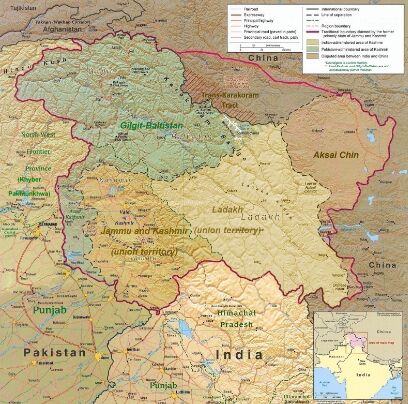UN and the standstill
After the abrupt stalling of 1947-48 Kashmir war, a confident Nehru took the issue to the UN which eventually ruled for immediate ceasefire, causing rather a lasting stalemate

Within hours of the signing of the Instrument of Accession, the Indian troops were airlifted to Srinagar, where the first thing they did was to secure the airport. As the troops had seen action in Kohima and Imphal, theatres of war, they could accomplish their mission quite comfortably.
However, when the Indian army was on the offensive and well on its way to capturing Muzaffarabad, Delhi suggested ceasefire, and Pakistan was more than happy to accept the offer — for India was in a position of dominance, and Pakistan would have lost the whole of Kashmir. Perhaps, as pointed out by Thomas Christopher, Abdullah never wanted India to capture territory over which he had little influence. Therefore, after securing the towns of Poonch and Rajouri which had substantial Sikh and Hindu populations, as well as the strategic town of Kargil, the Indian army was instructed to advance no further. The reasons were never shared with the field commanders; they were simply told that it would be difficult to arrange fuel, food, ammunition and supplies in the coming winter months. From the point of view of India, it was a strategic blunder, but Mountbatten and the British commanders – General Roy Bucher of Indian and General Gracy of Pakistan — were keen that the troops, which had seen action together in the second world War, should not be training guns at each other.
It must be mentioned here that Governor General Mountbatten flew to Lahore on November 1, 1947 for a conference with Muhammad Ali Jinnah, and proposed an `impartial reference to the will of the people' in all the princely states where the ruler did not accede to a dominion corresponding to the majority population (which would have included Junagadh, Hyderabad as well Kashmir). The offer was rejected by Jinnah.
Meanwhile, on January 1, 1948, India took the dispute to the UN — for both Nehru and Mountbatten thought that the global opinion would firmly be on their side. Nehru was probably basking in the glory of the successful Asian Relations Conference held in New Delhi in 1947 in which 28 Asian countries participated. Despite Jinnah's call to the Muslim countries to boycott this largely 'Hindu Congress' event, most countries including Turkey, Iraq, Malaysia, Kazakhstan — just to name a few — participated. However, the UN was realpolitik and, by 1948, every dispute in the world was looked at from the prism of the Cold War, and Pakistan was able to project herself as Islamic and anti-communist, as against India's professed socialism and secularism. Moreover, Pakistan swore by the Commonwealth, while India was just about giving her nudging approval. Nehru was also surprised by the very effective and articulate defence of Pakistan by their foreign Minister Zafarullah Khan.
From the Indian side, the best orator was Sheikh Abdullah. Speaking at the UN Security Council on February 5, 1948, he said: "The (tribal) raiders came to our land, massacred thousands of people — mostly Hindus and Sikhs, but Muslims too — abducted thousands of girls, Hindus, Sikhs and Muslims alike, looted our property and almost reached the gates of our summer capital, Srinagar… There is no way we can trust the raiders and their backers (Pakistan army). The Sheikh went to the extent of saying that the UN-sponsored plebiscite was irrelevant, for "the accession of the state to the Union of India was the prerogative of the Constituent Assembly of J&K".
The reference to the UN led to a stalemate. The UN Security Council called for an immediate ceasefire on both sides, and directed Pakistan "to secure the withdrawal from the state of Jammu and Kashmir, of tribesmen and Pakistani nationals, not normally resident therein, who have entered the state for the purpose of fighting." It also asked the Government of India to reduce its forces to minimum strength, after which the circumstances for holding a plebiscite should be put into effect "on the question of Accession of the state to India or Pakistan." However, it took exactly one year to give effect to the ceasefire; it was only on the first day of January 1949, that the agreement was signed by General Roy Bucher on behalf of India and General Gracey on behalf of Pakistan.
This was followed up by the Karachi Agreement of July 1949. A ceasefire line to be supervised by UN military observers under the auspices of United Nations Commission for India and Pakistan (UNCIP) was accepted by both the countries. At the Shimla Agreement of 1972, India and Pakistan signed an agreement to resolve their differences bilaterally, without any external reference and defining a Line of Control in Kashmir which, with minor deviations, followed the same course as the ceasefire line established by the Karachi Agreement in 1949. Although the UNMOGIP continues to exist, and India provides necessary security, transport and other services to the mission, no complaints are lodged with it from India's side.
Views expressed are personal



